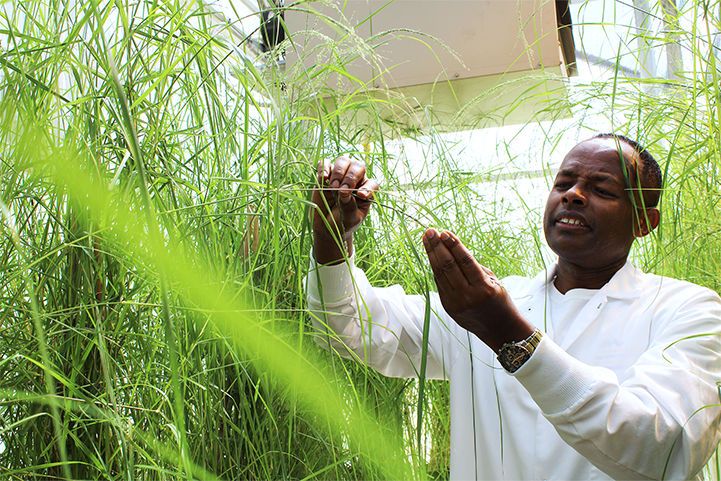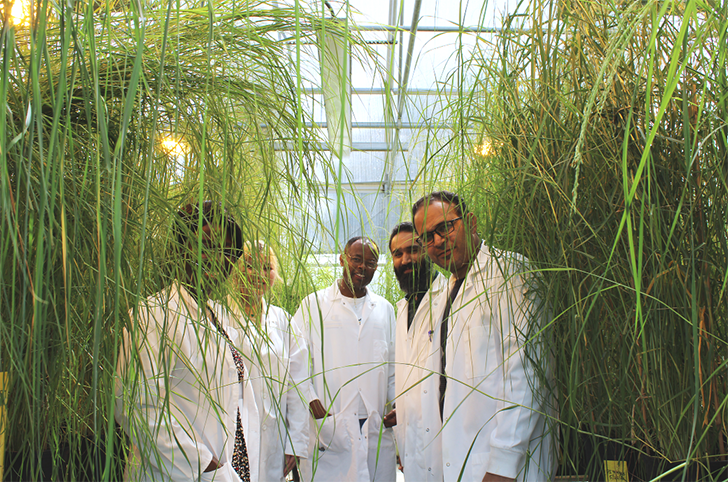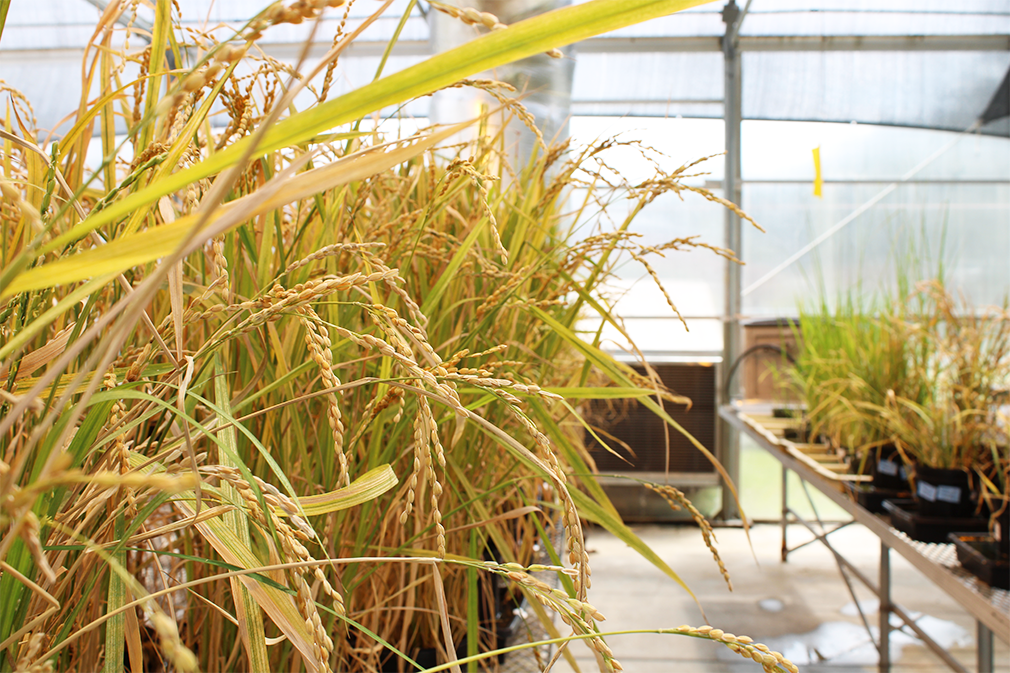
Posted on August 10, 2023
Research in the Osena Lab focuses on fundamental questions about food security as the global population approaches a projected total of 9.8 billion by 2050, necessitating an increase in cereal production by 50%. Enhancing crop productivity under the increasing impact of climate change is a great challenge as micronutrient deficiency, also called ‘hidden hunger,’ affects a third of the world population and about 30% of the U.S. population. Most of our calories come from three major cereals: rice, maize, and wheat; all are poor in essential micronutrients. Underutilized crops such as tef (Eragrostis tef) are resilient to climate change and marginal soils, rich in macro and micronutrients and proteins, gluten-free, and possess functional phytochemicals. Such ‘orphan crops’ have great potential to address global food insecurity in the face of global change. My overarching research goal is to develop crop plants that are nutritious, high-yielding, and resilient to abiotic and biotic stresses using molecular genetic tools.

I joined the Department of Biology at the University of North Carolina Greensboro (UNCG) as an Assistant Professor in August 2018, after completing 2 postdoctoral (Okayama University in Japan 2005-2007 and Cornel University (CU) 2007-2010) and 2 research associate positions (Cornell University 2010-2012 and Delaware State University (DSU) 2012-2018). I have published 27 peer-reviewed journal articles in various areas of plant science including plant physiology, biochemistry, genomics, biotechnology, and biofuels. My research has also produced 2 granted and 1 pending patents. I have forged strong collaborations with several faculty in different departments (Biology, Chemistry, and JSNN) here at UNCG, and other nationally and internationally recognized institutions including Cornell University, University of Delaware, Michigan State University, North Carolina State University, Oklahoma State University, Clemson University, Delaware State University, NC A&T, USDA/ARS, Wayne State University, Danforth Plant Science Center, Corteva Agriscience, and the Ethiopian Institute of Agricultural Research.
My lab is also interested in importing novel traits from extremophiles, such as thermophilic archaea and bacteria, to improve crop resilience to abiotic stresses including high temperatures and drought. We have generated transgenic T2 tobacco lines expressing archaeal antioxidant enzymes, such as superoxide dismutase, thioredoxin, and peroxiredoxin, which are currently being characterized for abiotic stress tolerance. I also collaborate with Clemson University to study the distributions and partitioning of microplastics in recycled wastewater-irrigated fields, interactions of antimicrobials and microplastics in soil-plant system, and devising risk reduction strategies. Our role at UNCG is studying interactions of antimicrobials-microplastics in soil-plant systems.
I have developed a highly productive and diverse team at UNCG working on mineral ion transporters, abiotic stress resilience, and the interaction of plants with environmental contaminants. The outcome of my research will place UNCG in a unique position to lead underutilized crop research with great potential for nutrition health and food security. Over the last 20 years, my research has spanned plant physiology, molecular biology, genomics, and biotechnology to improve agronomically important traits including yield and abiotic stress resistance of food, and self-processing ability of bioenergy crops in various laboratories in Japan and here in the U.S.A.
